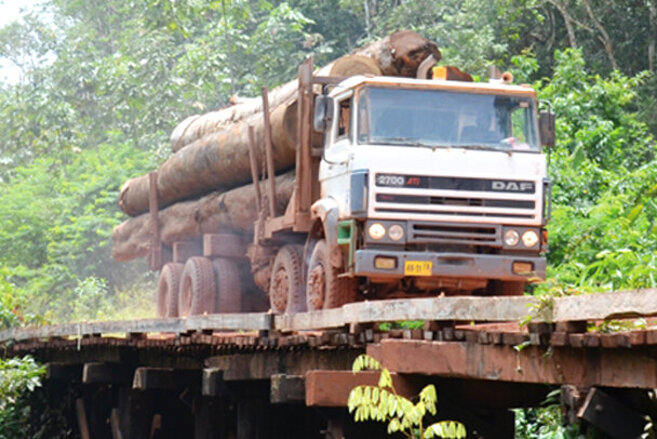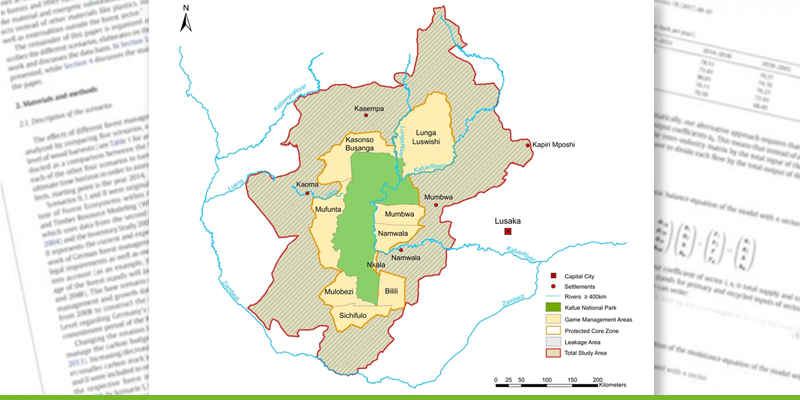Little is known about the potential long-term impacts of REDD+ (Reducing Emissions from Deforestation and Forest Degradation) projects on the combined effect of carbon stock sink potential and forest fragmentation and forest integrity. This is particularly important in Africa which currently exhibits the world´s highest forest-loss rate of ~3.9 million ha annually (2010–2020). Against this background, this study focused on the Kafue National Park (NP) and adjacent Game Management Areas (GMAs) (total area: 7,102,147 ha) which is part of the first REDD+ focus areas in Zambia.
Geospatial analysis tools and dynamic scenario modelling were used to analyse whether policy measures can safeguard the multi-functionality of forests in the study area from 2010 to 2040. Scenario results suggested that only under strong policy enforcement and low demand for agricultural areas, deforestation in the study area could be avoided by 93% (40,457 ha) while 1% in carbon stocks could be gained by 2040 in comparison to the business-as-usual scenario.
Analyses further revealed that cropland expansion will have a high likelihood to continue encroaching protected areas. We highlight that variations in carbon stocks and forest fragmentation were small across scenarios which has implications for land use management and the expected future benefits of REDD+ projects.
- Dietz J, Treydte AC, Lippe M (2023) Exploring the future of Kafue National Park, Zambia: Scenario-based land use and land cover modelling to understand drivers and impacts of deforestation. Land Use Pol 126:106535, DOI:10.1016/j.landusepol.2023.106535









